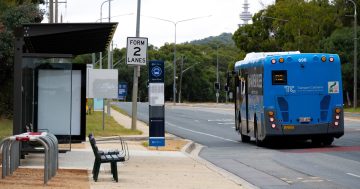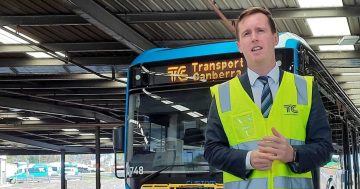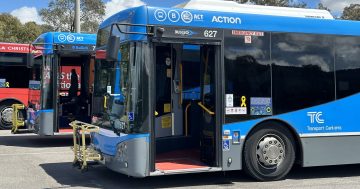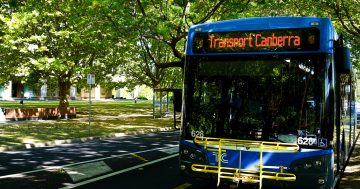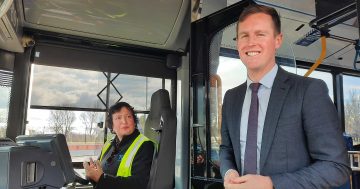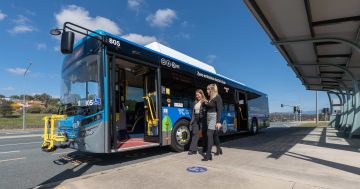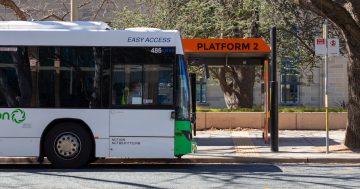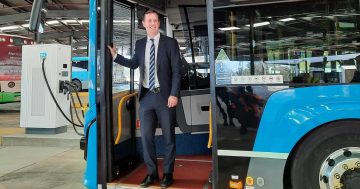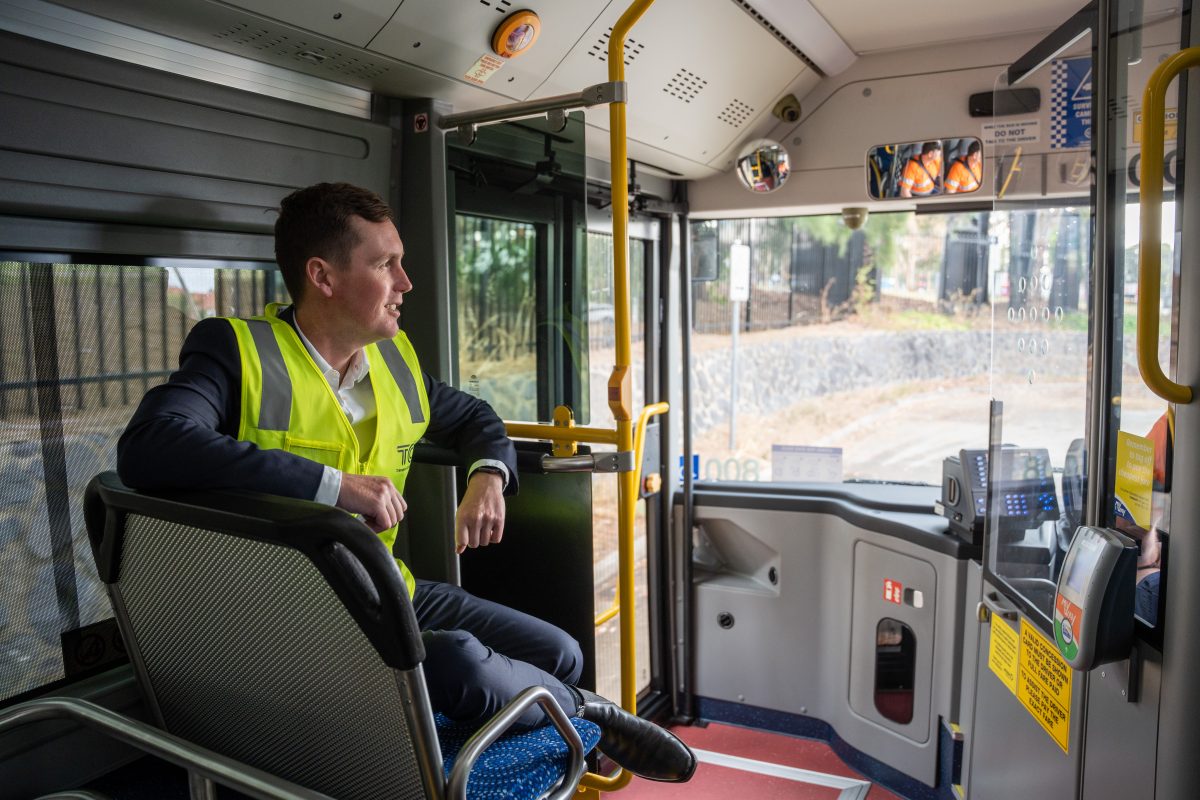
Time to get in the driver’s seat, Minister. Photo: James Coleman.
Once again, the Transport Workers’ Union has thwarted the ACT Government’s attempts to do something about the ridiculous situation of inadequate weekend bus services in Canberra.
The problem is an entrenched one – Canberra bus drivers do not work a seven-day roster, with weekend work optional, meaning there are hardly ever enough drivers to service the timetable, which the government reduced in 2019 because of the continued cancellation of buses due to a lack of available drivers.
The year-long enterprise deal negotiations wound up last week without any agreement being struck on weekend work.
The Government offered a two-year trial of incentives for weekend work – once a driver had worked 12 weekend days during the year, they would attract a 15 per cent penalty, and a new part-time weekend category.
The new pay category would have meant ordinary hours limited to weekend work only and to a maximum of 15 shifts per depot. These shifts wouldn’t start before 12 pm, and part-time workers would have access to annual and personal leave on a pro-rata basis.
But it just wasn’t enough, it seems.
Union boss Klaus Pinkus said the offer was tokenistic, insisting that if the government offered more pay for weekends, “they will come”.
But he wasn’t about to say how much.
Despite recruitment drives over the past four years, Transport Canberra still did not have enough drivers, Mr Pinkus said.
Some are working so much overtime during the week that weekend work is out of the question.
Like every good union leader out for the best deal for his members, Mr Pinkus says the Government just needs to find even more cash to wave at potential drivers.
This is despite Canberra drivers already being on a pretty good wicket, pulling among the highest driver salaries in the country.
Under the new agreement, their annual base salary (excluding superannuation) will increase from $82,733 or $41.72 an hour, as of June 2022, to $93,592 or $47.21 an hour by December 2025.
Throw in all that overtime and we’re looking at take-home pay in the six figures.
Let’s not begrudge drivers for getting the best deal they can, but that kind of pay deal should include a seven-day roster for what is supposed to be a seven-day service.
How long can the Government and Transport Canberra put up with a public transport system it is desperately trying to sell as a genuine alternative to the car but which leaves passengers in the lurch?
It becomes a self-perpetuating spiral – the less reliable the system is, the fewer people tend to use it, then services will have to shrink and so it goes on.
And those left taking the bus will have no choice in the matter.
Transport Minister Chris Steel says he will keep working with our drivers on how to provide more frequent and reliable bus services in the future, including yet another recruitment drive starting today.
But the Public Transport Association of Canberra believes Mr Steel and Transport Canberra have run out of excuses.
“Either Transport Canberra moves quickly to implement a new weekend timetable with at a minimum an hourly local bus service all Saturday and Sunday, or the Minister needs to start finding new leadership for Transport Canberra,” PTCBR deputy chair Damien Haas said.
“Thousands of Canberrans rely on weekend buses to get to where they need to be. It’s not acceptable to leave these people waiting at bus stops for up to two hours.”
Mr Haas said the latest pay deal was another missed opportunity to modernise the system.
He said drivers received a 25 per cent composite allowance on top of their base salary, which accounted for payment for public holidays, shift penalty rates, overtime rates and related allowances.
“If Transport Canberra is paying an allowance for drivers to work weekends, but we can’t find any weekend drivers, then it’s worth questioning whether we should have the allowance at all,” he said.
Canberra taxpayers will ask the same question.
They may also wonder whether a Labor Government is capable of pulling the drivers’ union into line and convincing it that a reliable, effective bus service is more in their long-term interests than squeezing as much as possible out of the Government.
The options on the table under a different government may not be to the union’s or drivers’ liking, such as going to a private operator.
The Barr Government has shown recently that it can play hardball when it wants to. It needs to put the interests of Canberra commuters ahead of any internal political considerations and put the interests of Canberra public transport users first and not be such a soft touch.
It is committing millions of dollars to new electric buses and supporting infrastructure, as well as light rail, to create the hoped-for integrated public transport system.
The drivers’ intransigence is putting all that investment at risk with their short-sighted and outdated stance.












